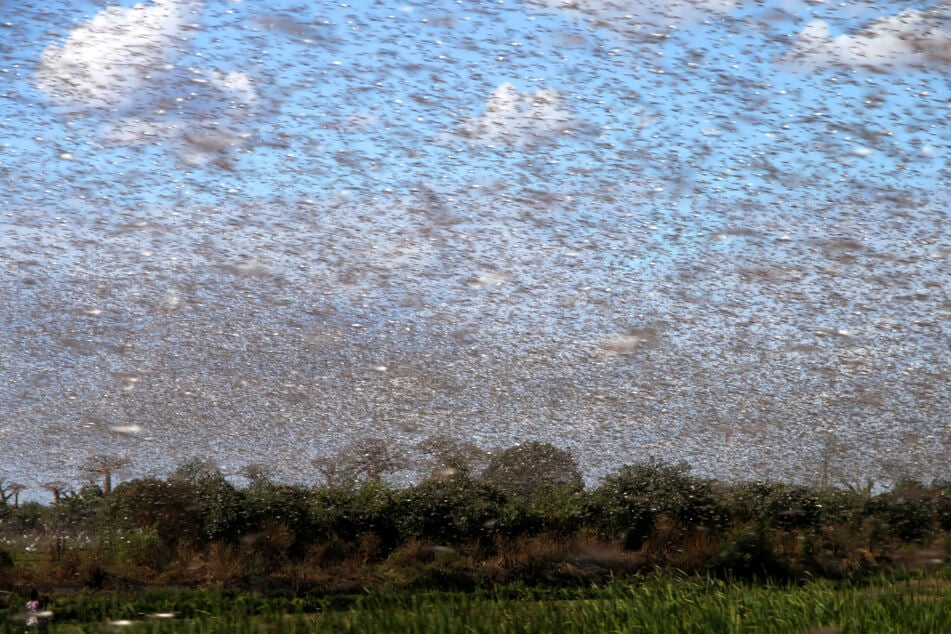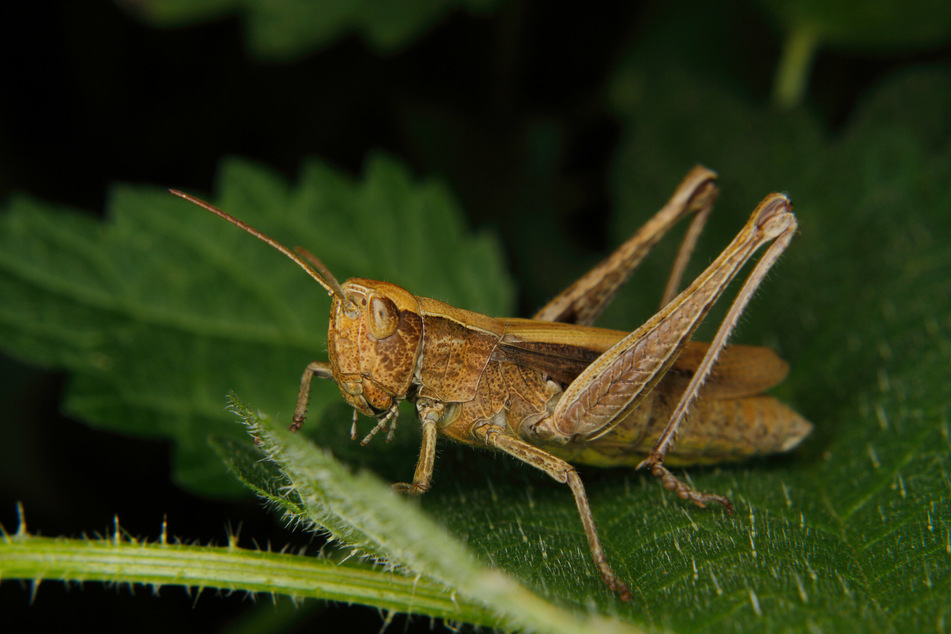"Scourge of the earth": Grasshopper swarms sweep the Northwest
Fort Klamath, Oregon - Prolonged drought and heat in the Northwest has created ideal conditions for grasshoppers to steal all living vegetation away from livestock. Farmers are struggling to cope with losses, especially when environmentalists condemn the use of insecticides in the battle against the swarms.

Farms and ranches in Oregon and Montana are currently being hit particularly hard by swarms of grasshoppers.
The massive presence of the swarms is causing them to show up on weather radars. The insects are covering roads and fields, and are decimating fields of grass and grain, resulting in hundreds of thousands of dollars of losses for each farm they hit.
"They are a scourge of the Earth […] They just destroy the land, destroy the crops. They are just a bad, bad predator," Fort Klamath rancher Richard Nicholson told Guardian, adding that tens of thousands of dollars in crop losses are inevitable.
The grasshoppers are not, strictly speaking, invaders; they have lived in these parts for thousands of years.
Their survival and reproduction however has been aided by warmer, drier winters, instead of the freezing temperatures necessary to kill off the adolescent insects. Add in a few sporadic rain showers that made grasses flourish and farmers have a literal plague on their hands.
"They eat from the day they are born until they die"

"The biggest biomass consumer in the country are not cattle, are not bison. They are grasshoppers," the Guardian quoted Helmuth Rogg, an entomologist and agronomist for the Oregon Department of Agriculture. "They eat and eat from the day they get born until the day they die. That’s all they do."
According to CNN, the bigger issue at play is that the grasshoppers have eaten all the grasses in pastureland set aside for cattle, forcing ranchers to sell off livestock because they can't afford to buy supplemental food.
Grasshoppers are voracious eaters, capable of flying for miles and traveling in swarms to strip a parcel of land a thousand acres in size completely bare of vegetation and then fly on to the next.
Authorities see hope in the targeted application of the insecticide Dimilin. But the problem is that there's only a very short window of time to apply the chemical: when the insects are very young or when they are molting, as their normal exoskeletons protect them from the chemical otherwise.
Environmentalists also say that using the insecticide will only worsen outbreaks in the future as it will also harm the grasshopper's natural competitors, preventing nature from controlling them next season.
Ranchers and farmers can only see through to saving crops and animals this season, though, and are desperate for any relief against the onslaught.
Cover photo: 123RF/tdietrich